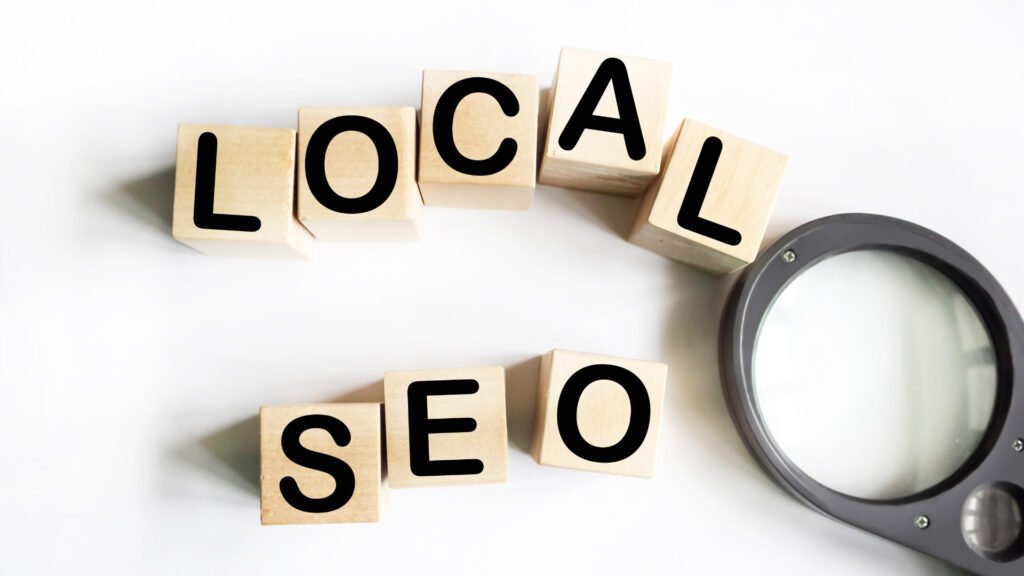Knowing how to optimize and promote your local business online properly is crucial for its success. Many companies make the mistake of believing that SEO is only done on a global level, when in reality, many strategies are specific to targeting local audiences.
In this post, we will cover the critical steps necessary to maximize visibility within your community and beyond – providing you with all the information needed to improve organic search rankings and overall web presence.
We outline tips and tricks we’ve picked up over the years through our experiences. By implementing these practices into your content marketing strategy – you will ensure higher ROI and advanced website standing among users within your locality.
Understanding What Is Local SEO

Local SEO refers to optimizing a website or online presence to improve visibility in local search results. It involves optimizing the website’s content, meta tags, and online listings to target specific geographic locations.
Local SEO aims to attract relevant local traffic, increase online visibility for local businesses, and drive offline conversions. This strategy is especially important for businesses that rely on local customers, such as brick-and-mortar stores, restaurants, and service-based businesses.
Why You Need Local SEO

Increased visibility in local search results
Local SEO helps businesses appear higher in local search engine results, making them more likely to be seen by potential customers searching for services or products within their geographical area. This can help draw people into your business who would not have known about it otherwise.
Research shows that users tend to click on the top 3-4 search engine results more than any other results, so local SEO is an effective tool for gaining higher visibility and improving your chances of getting noticed.
More targeted, relevant traffic from local customers
When potential customers search for something related to your business in their local area, they are already looking for what you offer. Local SEO puts your business in front of these users, helping you capture more targeted customers actively searching for what you provide. Furthermore, through tracking results from local SEO campaigns, businesses can better understand the needs and behaviors of their local customer base.
Improved website user experience and engagement
When a website is optimized for local searches, it is easier and faster for users to find what they are looking for. This helps improve user experience, as people can navigate the website more quickly and efficiently.
Plus, local SEO helps businesses create a website tailored to their specific audience by ensuring relevant content appears at the top of search engine results pages. As a result, website users are more likely to stay engaged and navigate further into the site.
Boosted online authority and credibility
By appearing at the top of local search engine results pages, businesses can establish themselves as authoritative source in their industry. This assures potential customers they can trust your business, increasing sales and conversions.
Reviews and ratings also play a major role in local SEO; businesses with good reviews and high star ratings will appear higher in local search results.
Ability to reach mobile audiences more effectively
More and more people are using their mobile devices to access the internet, making it even more important for businesses to optimize their websites for local searches. In essence, local SEO allows businesses to ensure that their website appears higher in local search engine results when users search on mobile devices, allowing them to reach more customers and drive more sales. Local SEO will also help websites adapt to different screen sizes so users have a smoother experience regardless of their device.
Increased Return on Investment (ROI)
By investing in local SEO, businesses can see a higher return on their investment than other online marketing strategies. This is because local SEO targets users who are already interested in what your business offers and are actively looking for it in their area.
Moreover, local SEO campaigns have lower costs and are easier to manage than other online marketing campaigns, meaning businesses can get more for their money.
12 Steps To Implement For Your Local SEO Checklist

1. Register Your Business With Google Business
Claim and optimize your Google My Business listing to ensure accurate and updated business information, making it easier for local customers to find you in Google Search and Google Maps.
This will ensure that potential customers can easily find you online and provides them access to all the information they need about your business, such as location, hours of operation, contact details,
2. Optimize Title Tags And Meta Descriptions
Having optimized title tags and meta descriptions for your website is essential to make sure that when potential customers search for related terms, they can easily find you and know what your business offers. This includes creating concise titles, using relevant keywords, adding a call-to-action, and more.
Craft unique and compelling title tags and meta descriptions that include relevant local keywords and entice users to click through to your website from search results.
3. Right Keyword Research For Your Products And Services
Identify local keywords that align with your offerings and target audience, ensuring your website content and optimization efforts align with local search intent. This involves researching short- and long-term keywords relevant to your specific location, products, and services.
4. Reference Your Location On The Website
Ensure you include your business’s physical address on all website pages. This will make it easier for search engines to associate your business with a particular location so potential customers can find you. At least, naturally incorporate your location in key website areas, such as page titles, headings, content, and footer, to signal to search engines and users that you serve the local area.
5. Link Your Site To High-Quality Local Directories
Connecting your website to local business directories is an effective way to build a strong local SEO presence and can boost visibility in search engine results. Make sure you include your business’s information on reputable online business directories, such as Yelp or Yellow Pages, as search engines are more likely to trust them.
6. Seek Out Customer Reviews And Testimonials
Encourage customers to share their experiences with your business by asking them to leave reviews on local review sites. This will help build up your online reputation and increase visibility in local searches. You will build social proof and improve the ranking of your webpages for local search terms.
7. Implement Schema’s Geographic Markup
Utilize schema markup to enhance your website’s visibility and make it easier for search engines to identify location information on webpages, such as address, phone number, store hours, etc.
By adding schema markup to your web pages, you can give search engines an easier time understanding the context of your page and deliver better results for local queries.
8. Build Backlinks That Occasionally Include Business Location In Anchor Text
External and internal links are essential for SEO and should be part of your local Search Engine Optimization strategy. Include Google business profile-like location in the anchor text when building links from local sites or websites with a regional focus, as this will help search engines better understand the context, making it easier for them to associate your website with a particular geographical area.
9. Create High-Quality Content That References Your Local Area
Develop informative and engaging content highlighting local topics, events, or resources, positioning yourself as a valuable source of information for the local community. This will help your website appear higher in local search engine rankings and can be a great way to build relationships with potential customers.
10. Make Your Website Mobile Friendly
More than 80% of local searches are conducted on mobile devices, so it is important to ensure your website is optimized for mobile use. Ensure fonts, buttons, and menus are large enough to be easily seen on a small screen, images don’t take too long to load, and the page structure adapts when viewed on different device sizes.
11. Strive For Local Online Coverage
Pursue opportunities for your business to be mentioned in other websites and publications, such as local news sites or online magazines related to your industry. This helps build up the credibility of your website in the eyes of search engines, increasing visibility for local searches.
12. Use Social Media
Post regularly, engaging users and highlighting local news or events related to your business on social media platforms. Many users now use social media as their first point of information discovery, so make sure to have a strong presence to reach potential customers.
Social media is also part of the Google algorithm, helping increase your website’s visibility for local searches.
How to Evaluate Your Local SEO Strategy

Sign into Google Analytics to access your website’s performance data.
Click on the “Admin” tab and navigate to the desired view (website property).
In the “VIEW” column, click on “Goals” to set up specific goals for your evaluation.
Click on “+ NEW GOAL” to create goals that align with your local SEO objectives, such as tracking conversions, form submissions, or other desired actions on your website.
Mistakes To Avoid In Local SEO Techniques

Keywords Stuffing
This mistake involves cramming too many keywords into the content of the page, making it easier to read and easier to understand. Not only does this tactic fail to improve your rankings, but it can also lead to penalties from search engines. To avoid this mistake, use keywords naturally in the content and only include a few per page.
NAP Inconsistency
For your business to appear in local search results, you must ensure that your Name, Address and Phone number (NAP) are consistent across all the platforms you use. This means they should be accurate, up-to-date and match exactly from one platform to the next.
If this data is inconsistent or contradictory, search engines may not be able to place your business in local listings accurately.
Ignoring Local Reviews
Many local businesses overlook the importance of reviews, but they can be a great way to boost your local search ranking. People rely heavily on reviews when deciding where to shop or which services to use, so it is crucial to take the time to respond to each review and encourage customers to leave reviews on your page.
This will help you build credibility with search engines and boost trust with potential customers.
Wrap Up: Improve Your Search Rankings With This Local SEO

To improve your local search rankings, you must keep up with changes in technology and SEO practices. Ensure you stay on top of the ever-evolving techniques used in local search engine optimization.
As the internet grows more complex, so does SEO—so be aware of new strategies and how they can help your business. The key tactics to improving local search engine rankings will enable you to maximize your reach within the local community.

